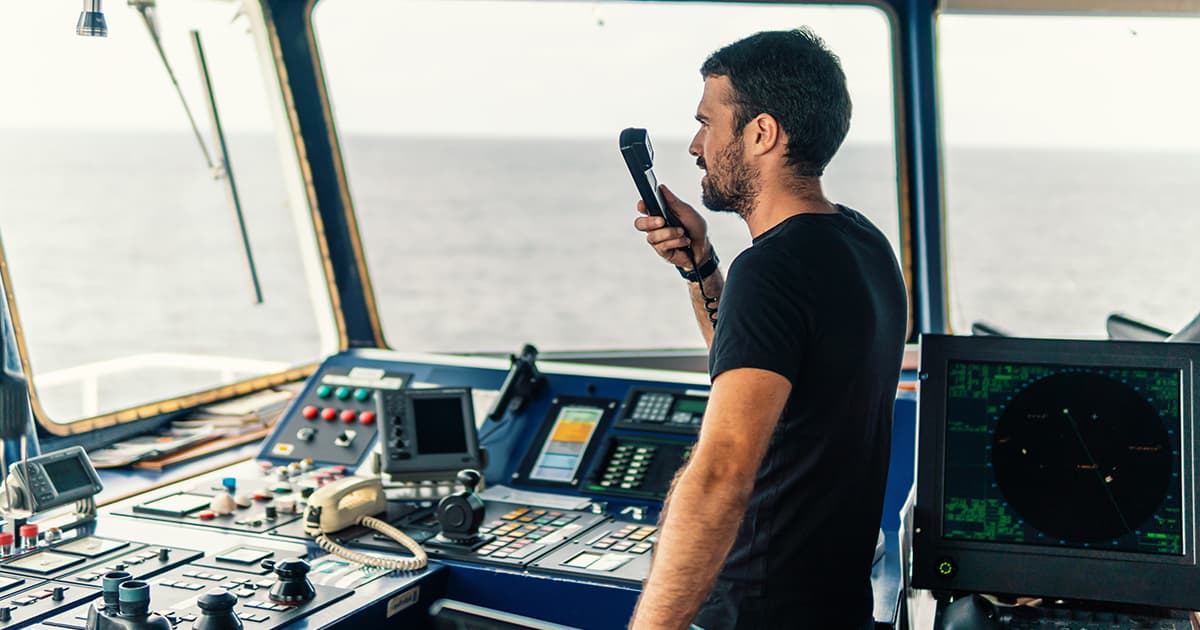Why a VHF Marine Radio is Essential for B.C. Boaters

If you have a boating emergency, can you be sure that your cell phone would work out on the water? How would you call for help? A VHF marine radio is essential to help keep you safe as a B.C. boater.
A VHF radio has more consistent reception than a cell phone or a CB radio for marine communication in British Columbia.
It allows instant communication between your boat and other boats, marinas, bridges, and the Canadian Coast Guard.
What is a VHF Radio?
Unlike a regular AM/FM radio, a VHF radio operates on specific frequencies reserved for maritime use.
These frequencies allow for clear communication over long distances, making it an invaluable safety tool for boaters.
B.C. and Canadian recreational boaters can call the Coast Guard and any commercial facility on VHF channel 16.
The Canadian Coast Guard continuously monitors channel 16 and it provides weather alerts for boaters. All boats are expected to keep channel 16 on or scan it regularly, so any boats nearby should be able to hear the distress call and respond when there’s an emergency.
Key Reasons Your Boat Needs a VHF Radio
- Emergency communication: In the event of an emergency, such as engine failure, capsizing, or a medical issue, you need a reliable way to call for help. A VHF radio, on the other hand, is designed for marine environments and provides a direct line to the Coast Guard for assistance.
- Navigational aid: A VHF radio is not just for emergencies and weather updates. It also serves as a navigational aid. You can communicate with other vessels to avoid collisions, seek advice on navigating tricky waters, and even get assistance with docking.
- Coordination and communication: Whether you're part of a boating club, participating in a regatta, or just out with friends, a VHF radio facilitates easy coordination and communication between boats. This can be especially useful when traveling in groups, ensuring everyone stays together and arrives safely at the destination.
- Legal requirement: In some areas, carrying a VHF radio is a legal requirement, especially for larger vessels or those venturing into international waters. Even if it’s not required by law in Canada, having one on board demonstrates a commitment to safety and preparedness.
The Coast Guard encourages boaters to use a VHF-FM radio as their primary means of distress calling.
Additional boating safety tips
While having a VHF radio is crucial, it's just one part of your boating safety plan.
Here are some additional for B.C. boaters to consider:
- Wear life jackets: Always wear a life jacket and ensure there are enough for everyone on board. Make sure they are in good condition and fit properly.
- Create a float plan: Before heading out, create a float plan that details your route, departure and return times, and names of everyone on board. Share this plan with someone on shore so they know where to start looking if you don’t return as scheduled.
- Perform regular maintenance: Keep your boat in good working order by performing regular maintenance checks, including inspecting the engine, checking fuel levels, and ensuring all safety equipment is functional.
- Carry a first-aid kit: A well-stocked first aid kit is essential for treating minor injuries and stabilizing more serious ones until help arrives.
- Understand navigation rules: Familiarize yourself with the "rules of the road" for boating. This includes knowing right-of-way rules, navigational markers, and signals.
- Avoid alcohol and drugs: Operating a boat under the influence of alcohol or drugs is not only illegal but also extremely dangerous. Alcohol and drugs impair judgment, coordination, and reaction times, significantly increasing the risk of accidents.
- Check the weather: Always check the weather forecast before setting out. If the weather looks unfavorable, it’s best to postpone your trip.
- Stay hydrated and sun protected: Boating can be physically demanding and being out in the sun for extended periods can lead to dehydration and sunburn. Drink plenty of water, wear sunscreen, and use protective clothing.
- Know your boat’s limitations: Understand the capabilities and limitations of your boat. Don’t overload it with passengers or gear and /avoid pushing it beyond its intended use.
If you’re a boater in British Columbia, you don’t want a mishap or an accident to be part of your boating trip. Even though boat insurance isn’t legally required, make sure you’re protected on the water. Speak to a Western Financial boat insurance expert about your B.C. boating needs.



